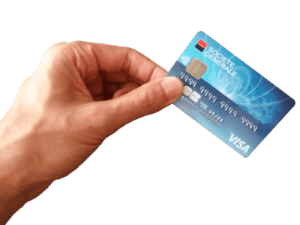Disability can be a lifelong condition that shapes your identity from birth, or something that happens in the blink of an eye – an injury or diagnosis that abruptly derails life as you know it. The Centers for Disease Control and Prevention estimates that one in five American adults lives with a disability, making the disabled the single largest minority group in the U.S.
Your disability may be readily apparent to others because you use a wheelchair, wear a prosthetic limb, lost your hair from chemotherapy, carry an oxygen tank, or have the characteristic features of dwarfism or Down Syndrome. Or it may be invisible to the world at large, like chronic pain, dementia, autoimmune disorders, and psychiatric conditions. Many of us will experience disability at some point in our lives, if merely from the process of aging, but that doesn’t make it any easier to manage.
People often don’t realize how common disability is until they experience it firsthand. They also may not appreciate how many barriers the disabled face. In addition to the physical barriers of navigating environments not built for them, and the social barriers of people who stare, look away, are overly solicitous, or make insensitive remarks, there can also be significant economic barriers. It is exceedingly difficult to stay afloat financially with a condition that “substantially limits one or more major life activities,” as defined by the Americans with Disabilities Act.
It is unfair, but the fact is – few things can send you into debt and destroy your credit faster than becoming disabled.
When you’re disabled, physical or medical challenges can significantly limit your earning potential and ability to work. Only 41% of disabled Americans are employed, according to the U.S. Census. At the same time, doctor and hospital bills, medications, assistive devices, therapy, and caregiver costs can pile up on top of ordinary living expenses like housing, utility bills, and transportation.
Despite the prevalence of disability, only 33.1% of U.S. workers have access to private long-term disability insurance, according to the Bureau of Labor Statistics. That leaves many with only Social Security disability benefits to fall back on, and it can take months or even years to qualify and start receiving payments.
Disability in America
In its 2017 Fact Sheet, the Social Security Administration reported the following:
- Among 20-year-olds today, 1 in 4 will become disabled before reaching retirement age
- 56 million Americans (1 in 5) currently live with disabilities
- 38 million Americans (1 in 10) live with severe disabilities
- Only a small subset of disabled Americans – about 9 million – receive Social Security disability benefits.
- Social Security disability payments are modest. At the beginning of 2017, Social Security paid an average monthly disability benefit of $1,170. That’s an annual income of $14,040 – just barely above the federal poverty level of $11,880.
How disability affects credit
It is very common for people who are disabled to have low credit scores. FICO scores were introduced by the Fair Isaac Company in 1989 to help lenders predict credit risk. Today they are used by 90% of lenders when deciding whether to approve a loan and how much interest to charge. The scores have evolved over time and there are different versions – for mortgages, credit card decisions, auto lending, and other loans. The exact formulas are secret, but FICO discloses the basic components of its scoring system. They are:
-
- Payment history: 35%
- Amounts owed: 30%
- Length of credit history: 15%
- Credit mix: 10%
- New credit: 10%
The most common way disability damages your credit is from loss of income. When people don’t earn enough to cover their expenses, the amounts they owe rise and they start missing payments. Missed payments and delinquent debts affect your credit score for seven years. If you have to declare bankruptcy, your score is damaged for up to 10 years. Unpaid tax debts can stay on your credit report forever.
This poor credit situation can quickly get worse if you enter into debt to pay for the costs of medical treatment, on top of your existing daily life.
So what can you do about your credit score if you are disabled? The first step is to find out where you stand. Everyone is entitled to one free credit report from each of the three major reporting agencies (Experian, Equifax, TransUnion) every 12 months. Examine it closely and if you find any errors, correct them as soon as possible. A recent Federal Trade Commission study found that 25% of Americans had some kind of error on their credit reports, but most were able to dispute them with an immediate improvement in their scores.
The next step likely finds you asking how do you improve your credit? You need to know your options for managing your debts, and then choose what works best for you to manage your finances.
Financial strategies for coping with temporary disability
If your disability is short-term, you might leverage some options specific to your situation and you might choose to prioritize ‘getting through’ the situation.
- Be ready to provide thorough written support of your specific disability and medical needs from qualified professionals, and be sure to have their contact information on the documents. Make sure this includes your SSN and proof of age/identity, medical records from all related visits to providers, any laboratory/test results, a list of your current medications and their dosages, support of employment, and a copy of your federal tax return.
- Check your insurance coverage to see if you have any short-term disability benefits. Some will pay you up to two-thirds of your salary for up to six months, depending on your particular situation.
- Apply for worker’s compensation, if applicable (i.e. if the injury was obtained on the job and results in absence from work). You might not have short-term disability benefits, but all companies must provide workers’ compensation.
- Leverage PASS, if applicable. PASS (Plan to Achieve Self-Support) helps you set aside financial resources to meet the needs of particular work goals, so that you can find a job and not have to use SSI/SSDI.
- Reduce your discretionary spending. Cancel memberships and subscriptions you don’t use, scale back your phone plan, and limit eating out, for starters. It’s very helpful to take stock of your monthly costs and spending, and realistically assess where you can comfortably cut back.
- Call your creditors and see if they’ll work with you. They might be willing to waive interest and penalties, give you a grace period, or even offer you a more manageable payment schedule. Different types of creditors have different things they can offer you, but do not be hesitant to ask – it’s the only way you can find out your options!
- Apply for a line of credit if you have no other income and your condition is temporary. Your bank might be a good place to start on this, since you’ll have the most “history” for them to work with. Opening a line of credit will lower your credit score, but is a better alternative than missing payments.
- Use balance transfers. Minimize the interest you pay long-term on the debt you already have and help any payments you make go farther against your owed balances.
- If you own a house, you might be able to take out a home equity loan. This can give you a lump sum of the difference between the mortgage you’ve paid off already and the market value of your home. You can then pay this off in installments, keeping you fluid until your life settles down a bit.
- If you have a 401(k) retirement plan, you might be able to take a hardship withdrawal of up to 50% of the value of your plan, up to a maximum of $50,000. That said, these come with a 10% penalty if you are below the age of 59 ½ years old. Additionally, they are subject to income tax.
- Look for ways to earn extra income that don’t require physical effort. You might be able to sell unwanted items online, rent a spare bedroom, or even perform internet-based work via sites like Mechanical Turk or AskWonder. A simple web search for these items can yield you the most up-to-date information on what’s out there, but the key thing to remember is that there is always another way to earn income!
- Build out your skill set. If you can, use your recovery period to learn new skills through online courses or certification programs, and potentially create alternative sources of income for yourself or even start mapping out a path for a raise upon your return to work.
- Explore legal action. If your disability was caused by an accident or negligence, you might have a case for compensation. Granted, this might take months to actually pay out, getting started on it sooner rather than later is preferable.
- See also: What is a high risk merchant account
Financial strategies for coping with long-term disability
If your disability is permanent or long-term, you may need to make bigger lifestyle changes.
- Apply for Social Security benefits immediately. Social Security Disability Income (SSDI) and Supplemental Security Income (SSI) are available to many workers if they have permanent medical conditions, i.e. lasting at least one year or that will result in death.
- Open a separate bank account for disability payments and any other exempt funds (particularly those received from the government) to protect that money from potential garnishment by creditors.
- Change your living situation. You might need to change your home in order to accommodate your disability.
- Downsizing is one option to reduce costs. Additionally, you may be able to sell some of your property – via yard sale, Craigslist, eBay, etc – and acquire some more cash to help you assume control over your finances.
- Get a roommate or move in with your family. Speak with your roommate and even friends and family in clear terms about what’s acceptable for both parties. Your disability might mean some limitations in what you can do around the house, as well as an increased need for care, but with transparency you can negotiate something that fits both you and your roommate(s)’s needs.
- HUD Housing Laws are meant to protect you…and your finances. Housing providers must make reasonable accommodations to meet your disability, and protect against your discrimination. As the HUD office notes, there are some opportunities for housing providers to obtain financial assistance to fund these modifications, so this is not your responsibility – nor something that can be used to force you out of a living situation.
- Income-based housing might be something to look into, as they can even charge rent based on your monthly SSDI payments. Many of these apartments are built to accommodate the disabled, and so you might even find easier accommodations and heightened solidarity from your neighbors.
- Calculate your weekly/monthly required and variable expenses, and identify what you can cut back on.
- Set a flat bill with your utility company. This can help make your recurring expenses a fixed amount, which in turn can help you budget better.
- Ditch your phone service and rely instead on VOIP. If you need a cell phone, consider the most basic plan – which you can use only in case of emergencies.
- Ditch cable. With online streaming services you can pay for exactly what you watch.
- Check for disabled discounts. Many companies offer discounts for those facing specific disabilities or diseases on products and services.
- Check with nonprofits relating to your disability, as they may have the most detailed as well as up-to-date information regarding discounts, financial assistance, support groups, and even pending legislation that relates to your condition. This is particularly helpful if your disability makes you require specific equipment or accomodations.
- Tax deductions might be available. The IRS provides detailed information for people with disabilities, and it might be a good idea to check with your state’s tax office to see if there are any local breaks that you could leverage.
- Reduced travel and transportation fares might be available. Long-term travel can help with your quality of life, visiting family, and even seeking medical services from specialists that are far away. Discounted transportation can increase your independence in your daily life.
- Know your employers’ support options. What benefits do they offer in the face of disability or illness? Some options you might encounter include long-term disability insurance or care benefits, and even life insurance.
- Are you eligible for a ‘living benefit’? Based on your particular diagnosis, you might be eligible for an advance on the death benefit.
- Are you eligible for a “viatical settlement”? This financial arrangement allows you to sell some of your life insurance policy at a discount, but it might be enough to help you.
- Reevaluate career options. You might need to find a new line of work, or even just alternate sources of income.
Tips for debt relief for the disabled
- Is your debt unsecured? Such debt does not have collateral (e.g. house) that can be seized in the event that you cannot make a payment; common examples include credit card debt, medical bills, and student loans. Your creditor would have to sue you first and win court judgment in their favor, but if you incurred a permanent disability, you might be “judgment-proof.”
- Be wary of government liens – federal or state – that may be placed if you owe taxes for so long – without addressing them in any way – that they are sent to collections. Aside from potentially seizing your finances, this will also make it very difficult for you to get any loans or credit. Again, your best bet here is to speak with the government agencies involved and negotiate an affordable payment plan.
- Be wary of landlord liens. Check your lease as well as your state’s laws on the circumstances under and extent to which landlords can seize your personal property.
- Contact your lenders and learn the terms of your accounts. Be sure to read your contracts. Sometimes, in the case of permanent disability, your debts might be forgiven. Make sure you provide all requested documentation. It’s also a good idea to check in with credit reporting agencies to make sure the debt forgiveness was reported properly.
- This includes healthcare providers. They might be able to offer you a payment plan or even reduce the fees they charge you. This is particularly true of major educational/research hospitals, which often receive more government support to accommodate such situations.
- Address government debt first. Part of why this is critical is that while creditors cannot garnish payments like SSDI, the government can, depending on what you owe them – including taxes and child support payments. That said, if you indicate willingness to pay, you are more likely to receive help in making payments. Call the government and discuss whether you have any payment plan options, etc. Be very upfront and realistic about what you can or cannot afford.
- Apply for credit card hardship support. Many credit card companies now offer programs to help you pay down the debt; they would rather receive some payment from you than none, and so this is advantageous for you both. These programs usually fall into one of two camps.
- You might get to discuss an interest rate and monthly payment amount that works for what you can afford, which might be particularly helpful in the face of long-term disability.
- Another option might be to receive a period of deferred payments, which might work well for short-term disability, though you’d have to close your account and not receive any reduction in the final amount owed.
- Find a credible debt management program. These programs offer reduced interest rates, reduced monthly payments, improved schedule, and waived late fees, all of which they handle negotiating with your debtors directly. Consult the Federal Trade Commission (FTC)’s site for more information on how to identify reputable credit counselors.
- For federal student loans, look into the total and permanent disability (TPD) relief. This can free you of your obligations on federal student loans and service on TEACH Grants.
- For private loans, there is less protection. Check the terms of your loans and reach out to your lender directly to understand whether there is any loan forgiveness or alternate payment options to help accommodate your situation.
- Speak to a bankruptcy attorney. You can likely continue to receive SSDI and SSI payments even while under bankruptcy. It’s good to know all of your options and totally understand the implications of each, particularly as they relate to your specific situation. That said, the process of filing for bankruptcy is time-consuming and long, so many recommend finding other ways to make money as opposed to trying to drop your debts.
- Check with local state offices to see what kinds of help you can get. Depending on your particular disability, you might be eligible for government assistance.
- Get help paying for your food. Each state has its own offerings, so be sure to check that list for the most up-to-date information on the help you can receive. Adequate nutrition is essential for proper health, and is therefore perhaps an even more critical issue for the disabled.
- Get help paying your bills. Local offices can tell you more about the financial assistance programs that are available to help you meet your basic human needs.
- For Medicare recipients, get help paying for your prescription drugs.
- Check for unclaimed money. Make sure you refer to a reputable source for information on this (e.g. a “.gov” website), and don’t give out any personal information.
- Keep track of all of your income. Given the potentially complex situations that your disability might place you in – receiving benefits, missing work, etc. – make sure you document all of your income and spending. Save all of your receipts. You want to make sure you maximize all of your possible deductions, while also making sure to pay income tax appropriately. Some disability payments might be subject to income tax, and so you want to make sure you stay on top of this to avoid getting in trouble.
- Apply for discounts on healthcare coverage. The Healthcare Marketplace offers an application for disability-based coverage, as well as plenty of information on the different insurance plans available.
How to help a disabled family member with credit problems
If a family member or loved one is disabled and facing credit problems, there are ways you can help them. That said, all parties should be careful about how much risk they take on, and definitely need to remain alert regarding their commitments and their options.
- Do you live in a community property state? There are currently 9 community property states in the US: Arizona, California, Idaho, Louisiana, Nevada, New Mexico, Texas, Washington, and Wisconsin. In these states, spouses are equally liable for debts acquired during their marriage.
- Co-sign credit cards and loans carefully. Discuss with your loved one whether the liability makes sense for you to take on. The brutal truth is that credit card debt does not transfer after death (as long as the account was not co-signed), and so there are situations in which it might be more advantageous to keep your name off legal documents, even if you do help your loved one make payments. That said, you might be able to help win some relief that could make all the difference in your loved one getting back on track.
- Meet with a credit counselor or attorney. The Department of Justice maintains a state-by-state list of approved credit counselors here, many of whom provide services in languages other than just English.
- Review their credit report together. Make sure that all debts – and their resolution – are reported properly to the three major credit bureaus.
- Help them find relevant grants. There are some grants available for individuals (and, in many cases, their families) with certain diseases and/or needs. Many of these are state-specific! Help your loved one identify a reputable source and assemble the necessary application. GrantWatch is one source we found helpful, although we recommend searching for key words relating to your condition(s) and location, in order to find the most up-to-date information.
Disclaimer: This article is intended as suggestions, but is in no way a substitute for consultation with a qualified financial and/or legal professional.





